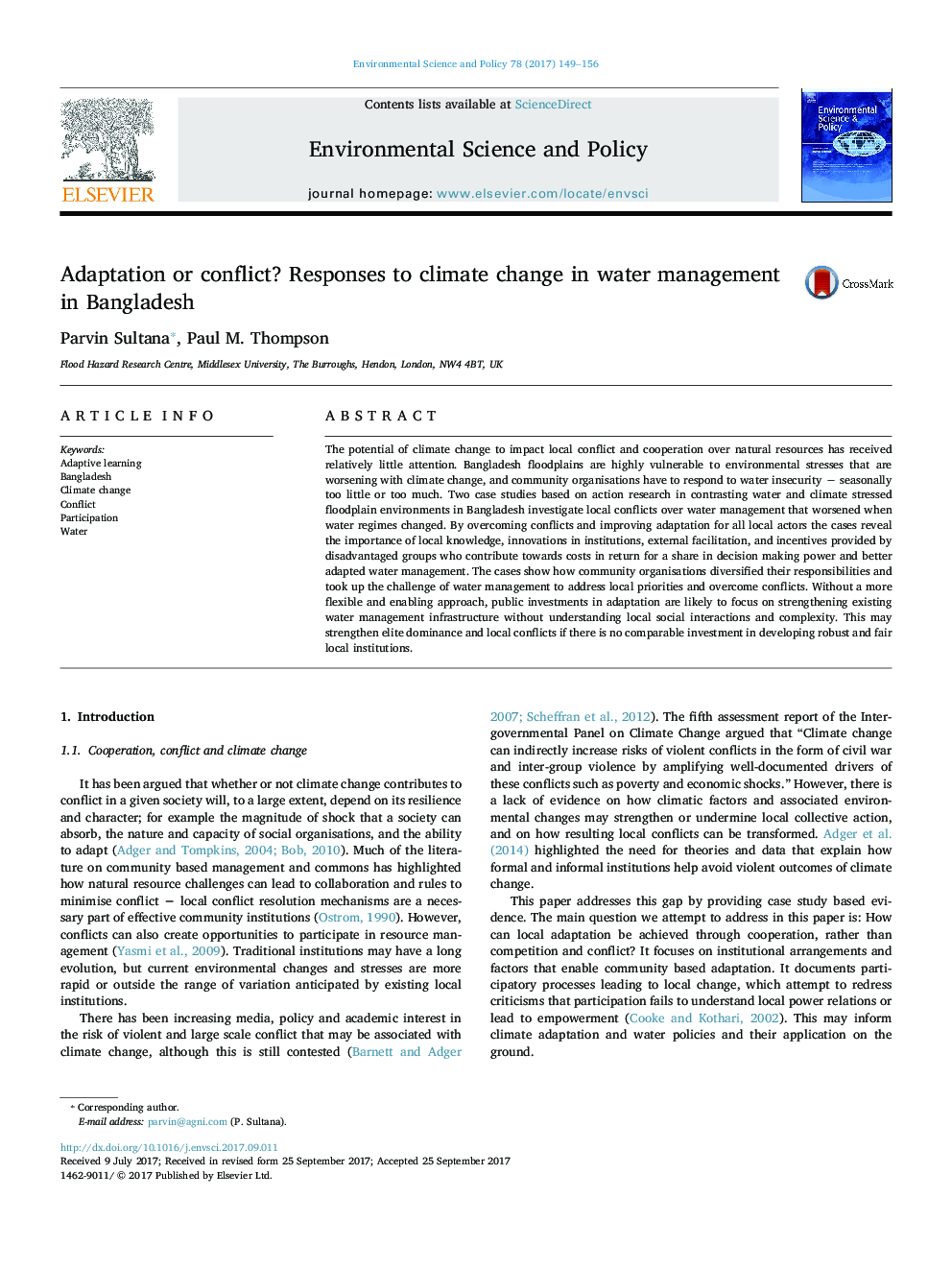| کد مقاله | کد نشریه | سال انتشار | مقاله انگلیسی | نسخه تمام متن |
|---|---|---|---|---|
| 5115688 | 1485030 | 2017 | 8 صفحه PDF | دانلود رایگان |
- Climate change did trigger or worsen conflicts.
- The locally powerful took advantage of climate related changes in resource bases, undermining past cooperation.
- Unlocking local knowledge and developing local incentives enabled innovation and cooperation.
- Government infrastructure does not consider consequences of elite capture and social complexity.
- Action research helped raise disadvantaged voices and enabled win-win transformations of local conflict.
The potential of climate change to impact local conflict and cooperation over natural resources has received relatively little attention. Bangladesh floodplains are highly vulnerable to environmental stresses that are worsening with climate change, and community organisations have to respond to water insecurity â seasonally too little or too much. Two case studies based on action research in contrasting water and climate stressed floodplain environments in Bangladesh investigate local conflicts over water management that worsened when water regimes changed. By overcoming conflicts and improving adaptation for all local actors the cases reveal the importance of local knowledge, innovations in institutions, external facilitation, and incentives provided by disadvantaged groups who contribute towards costs in return for a share in decision making power and better adapted water management. The cases show how community organisations diversified their responsibilities and took up the challenge of water management to address local priorities and overcome conflicts. Without a more flexible and enabling approach, public investments in adaptation are likely to focus on strengthening existing water management infrastructure without understanding local social interactions and complexity. This may strengthen elite dominance and local conflicts if there is no comparable investment in developing robust and fair local institutions.
Journal: Environmental Science & Policy - Volume 78, December 2017, Pages 149-156
